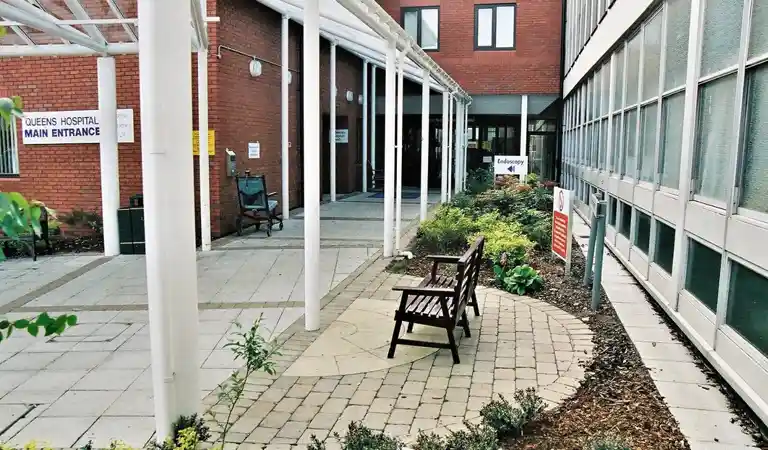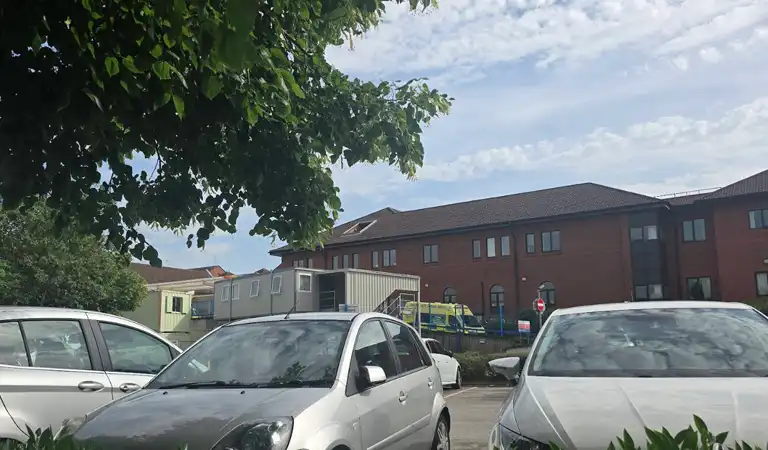Burton Hospital Visiting Times are generally, allowing friends and family to spend time with their loved ones while in hospital.
However, different wards have specific policies, particularly in maternity, paediatrics, and critical care, where visiting rules can vary to ensure patient comfort and safety.
If you’re planning a visit to Queen’s Hospital Burton, it’s important to check the latest visiting guidance so you don’t arrive at the wrong time or with more visitors than allowed.
In this guide, we break down the visiting hours for all key wards, explain exceptions, and highlight what you need to know before your visit.
General Burton Hospital Visiting Times

Visiting times at Queen’s Hospital Burton are typically from 8 am to 8 pm, seven days a week. This applies to most general wards and the High-Dependency Unit (HDU). To maintain a calm and safe environment for patients, a maximum of two visitors per patient is allowed at any one time.
In certain circumstances, such as end-of-life care or when a patient requires additional support, ward staff may approve exceptions to these limits. It is always best to speak with the nurse in charge if your situation requires flexibility.
Visitors are encouraged to be mindful of other patients in shared bays, keeping noise to a minimum and ensuring mobile phones are on silent.
Hand hygiene is essential before and after visits. The hospital asks all visitors to use the sanitising stations provided to help prevent the spread of infections.
Maternity Visiting Hours at Queen’s Hospital Burton

Labour Ward & Birth Centre
Women in labour can have up to two birthing partners or support people present with them. Visiting is available 24 hours a day, ensuring that expectant mothers have the emotional support they need throughout labour and delivery.
These support partners are not counted within the usual visitor limit and may accompany the mother without time restrictions. It is recommended that chosen support people remain the same throughout labour to minimise disruption and maintain continuity of care.
Postnatal Ward
Once a baby is born, partners or a designated support person are allowed to stay with the mother around the clock. Siblings of the baby may also visit at any time, helping families adjust to the new arrival together.
Other family members and friends can visit between 8 am and 8 pm. To protect both mother and baby, a maximum of two additional visitors per bed space is permitted at any one time. This rule helps reduce overcrowding on the ward and ensures mothers have the rest and privacy they need after giving birth.
Children’s and Paediatric Units Visiting Times

Children’s Emergency Department (CED) & Paediatric Assessment Unit (PAU)
For safety reasons and due to limited space, only one parent or carer is usually allowed to accompany a child in these areas. In exceptional cases, siblings or additional visitors may be permitted, but this must be discussed with the nurse in charge.
Neonatal Intensive Care Unit (NICU)
Parents, siblings, and grandparents can visit 24 hours a day, reflecting the importance of family bonding and parental presence in neonatal care. Other visitors are welcome between 3 pm and 8 pm. If families have special requests, such as visits from other close relatives, this should be discussed with the ward team, who may offer flexibility where appropriate.
Paediatric Critical Care Unit (PCCU)
Two parents or carers may be present with their child at any time of day or night. Sibling visits may be arranged after discussion with the nurse in charge. Because critical care environments are highly sensitive, the hospital carefully balances patient wellbeing with family access.
Other Paediatric Wards & Outpatients
On general paediatric wards, two parents or carers may visit at any time, and one parent is allowed to stay overnight. Sibling visits are considered on a case-by-case basis and should be discussed with staff before arrival. For outpatient appointments, up to two parents or carers can accompany the child.
Visiting Etiquette and Hospital Rules
To ensure a safe and respectful environment, Burton Hospital has several visiting guidelines:
- Infection Control – Handwashing or using hand sanitiser before and after visits is essential. Visitors with colds, flu, or stomach bugs should delay visiting until fully recovered.
- Respecting Limits – Adhering to visiting times and maximum visitor numbers helps avoid overcrowding and ensures patients receive proper rest.
- End-of-Life Care Exceptions – The hospital recognises the importance of family presence during compassionate circumstances. In these cases, visiting rules may be relaxed to allow loved ones more time together.
- Check Before Visiting – Some wards may have temporary restrictions, particularly during outbreaks of flu or norovirus. Visitors are advised to call the hospital before arriving to confirm current arrangements.
By following these guidelines, families and friends can help create a supportive and healing environment for patients.
Conclusion
Visiting a loved one in hospital is an important part of their recovery and wellbeing. At Queen’s Hospital Burton, most wards welcome visitors between 8 am and 8 pm daily, with specific rules for maternity, paediatric, and critical care units. Partners and parents are given extended access in recognition of their vital support role, while exceptions can be arranged through ward staff in special circumstances.
If you are planning a visit, it is always wise to check with the ward in advance to confirm any updates to visiting hours or restrictions, particularly during flu season or times of high infection risk.
By respecting hospital guidelines and being mindful of patient needs, visitors can make their time at Burton Hospital both supportive and stress-free.
For more hospital visiting information across the UK, explore our other guides on Hospital Visit Times and share this page to help others planning their visit.
Share this article to keep others informed!